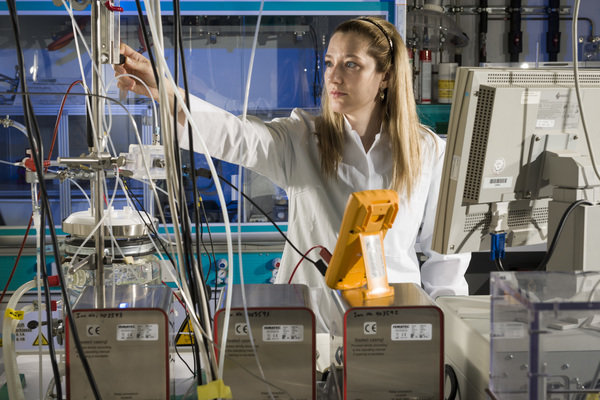
Research Group: Electrochemical Energy Conversion
The necessary defossilization of transport, industry, and heating—commonly referred to as the energy transition is challenging and demands innovative solutions to fundamental scientific and technological problems. Electrochemical technologies, including water electrolysis, batteries, and fuel cells, play pivotal roles in this transition. Additionally, there is growing interest in other electro-synthetic processes, particularly within the context of the circular economy.
Traditionally, electrochemical processes are studied under steady-state, direct current (DC) conditions. Alternating current (AC) conditions are primarily used for analyzing electrochemical processes, such as in electrochemical impedance spectroscopy (EIS) or non-linear electrochemical impedance spectroscopy (NLEIS), which employs larger input signals and focuses on nonlinear contributions in the response, for example, in diagnosing batteries. Recently, a rapidly growing community has reported positive impacts of high-amplitude AC electrolysis on product selectivity in electro-synthesis. These different aspects of AC conditions i.e. analysis vs. process enhancements are currently treated as unrelated within the scientific community.
Therefore, our goal is to establish a generalized framework to analyze and optimize (e.g. in terms of selectivity, energy efficiency..) electrochemical processes under AC conditions. Our approach integrates mechanistic and data-driven mathematical models of electrochemical processes with carefully designed experiments. The broad range of experimental examples, such as polymer electrolyte fuel cells, polymer electrolyte water electrolysis, CO2 reduction reaction, oxygen reduction reaction, and bioelectrochemical processes, allows for the generalization of behavior under AC conditions. The research is organized into the following areas:
Fundamentals of Dynamic Electrochemistry
Energy Converters under Dynamic Conditions
Data-Driven Analysis of Electrochemical Processes